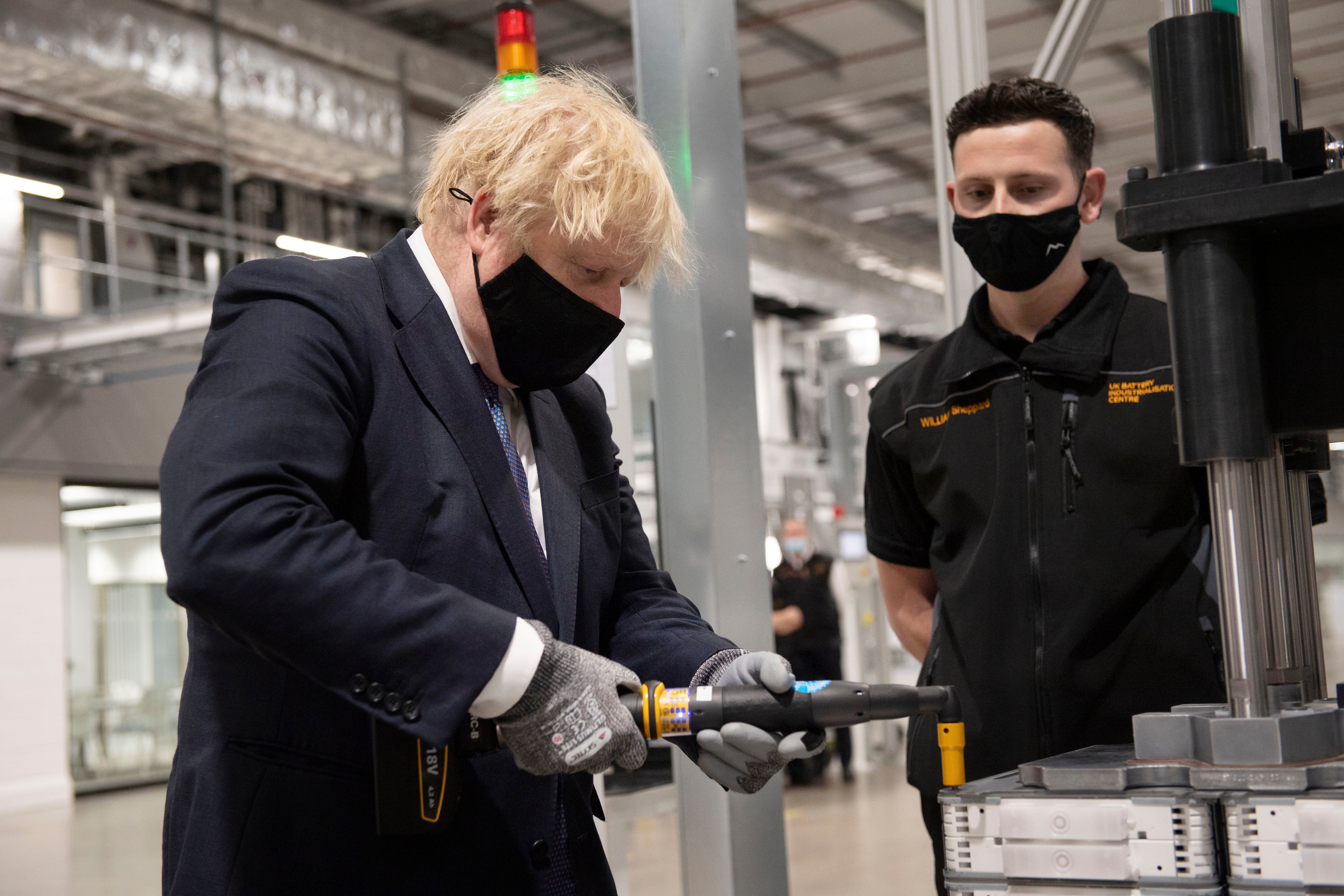It’s about time we found out exactly what ‘levelling up’ means
Remember Workington Man and how his vote for the Conservatives, away from Labour, was regarded as key? Now it’s time to make good on those promises, writes Chris Blackhurst


It’s hard to tell if our prime minister is the sort for reflection. Certainly, he does not give that impression. He likes to move on, to the next big idea.
In the coming months, looming large is levelling up. By now we were due a government paper detailing what it meant, what the label entailed. That’s been delayed – it was rubbish, apparently.
But the policy has not gone away. Far from it. Across Whitehall it’s repeated ad nauseam, without anyone having much clue as what they’re talking about.
So, I want to provide Boris Johnson with just one project which is dear to my heart, but which, unlike many of his infrastructure schemes, works. And not only that, it ticks not one but two boxes: one marked improving transport links in the North of England; the other labelled renewable energy and climate change.
My father died this year, aged 90. As a schoolteacher in Cumbria and a local councillor he campaigned vigorously for a barrage to be built across Morecambe Bay and the Duddon Estuary. His vision was of a road connecting Lancashire with the West Coast of Cumbria, making that part of the country more accessible, providing a fast route into that side of the Lake District.
At present, to reach that area involves a 40-mile plus drive along winding roads from the M6 motorway. Suddenly with a road across, it is within reach in a fraction of the time.
The project never got off the ground because environmentalists, specifically bird watchers, protested. Morecambe Bay and the Duddon Estuary are magnets for sea birds.
Now, though, there is a plan, one that should not cause offence and as I say, works. At a cost of £10bn, a company called Northern Power Tidal Gateways is convinced it can build tidal barrages across the bay and the estuary. They would generate emissions-free power for 100 years and protect low-lying districts from rising sea levels.
The numbers are impressive: the project would deliver 8 million megawatts of renewable energy annually, enough to drive 2 million homes, and create more than 12,000 jobs. Boris, are you listening?
Smart turbine technology would safeguard the coastal communities at risk from being washed away by higher tides. Ecology and wildlife would also be saved.
If levelling up is to mean anything, if it is to have any chance of making the difference that Johnson has assured it will, then proposals like this one should be adopted
There is no finer sight than watching the tide rush in, across the sands. Literally, it comes in, suddenly, as a wave. Tragically, as those cockle-pickers found to their cost, it is immensely strong. At least 21 (the true number may never be known) Chinese illegal immigrants died in 2004 when they were caught by the incoming tide and drowned.
With some encouragement from government Britain could take advantage of its natural geography. We could lead the world in tidal power, manufacturing turbines and developing the latest technology. It’s estimated that the waves off the west coast, from Solway to Somerset, if harnessed properly, could supply 20 per cent of the UK’s entire electricity needs.
The whole thing could be built quickly and easily, using modular methods. In not much time – shorter than other projects proposed and enthusiastically endorsed by Johnson – one large portion of the nation would be transformed. Barrow-in-Furness would cease to be at the end of what is often billed as Britain’s longest cul-de-sac. The coast from the town, north to Whitehaven and Workington, would no longer be so cut off and isolated. This, don’t forget, is the region identified by Johnson’s campaign managers as being vital to securing his general election victory. Remember “Workington Man” and how his vote for the Conservatives, away from Labour, was regarded as key?
This. then. is the opportunity for Johnson to give something back. It would also open up the western half of the Lake District. While that may not please those who view this part of the National Park as special, to be preserved, containing as it does the grandeur of Wastwater and the peak of Scafell, it would lessen the congestion on the eastern half. Anyone who has been to Bowness and Ambleside at the height of the holiday season knows all too well the traffic jams and crowds.
Again, this may seem minor, but the Lakes, is increasingly one of our most popular tourist destinations, along with Cornwall.
Of course, I feel passionately about it. I grew up there, still have family and friends there. But I submit, if levelling up is to mean anything, if it is to have any chance of making the difference that Johnson has assured it will, then proposals like this one should be adopted.
It may seem like a colossal amount, £10bn, but that’s what engineering and development on this scale, with this degree of ambition, costs. Compared to some of the “grandes projets” embraced by Johnson – it’s cheap and value for money.
My dad, sadly, never got to see it become a reality. With the advent of new systems, new ways of building, new turbine equipment, and with the crushing imperative of climate change and forestalling environmental disaster, there ought to be no argument. If Johnson really does want to level up, he could bridge Morecambe Bay and the Duddon Estuary.
Join our commenting forum
Join thought-provoking conversations, follow other Independent readers and see their replies
Comments



Bookmark popover
Removed from bookmarks